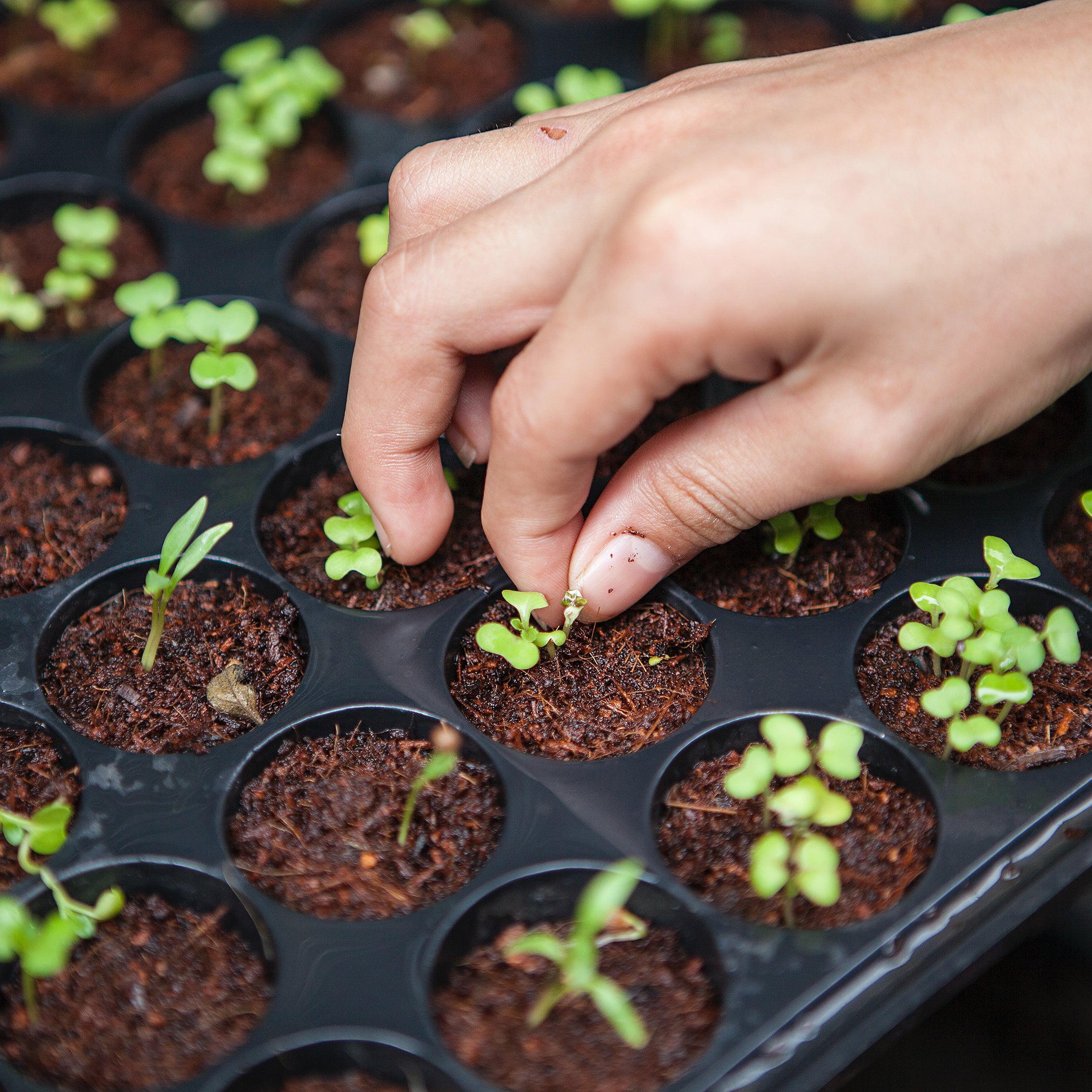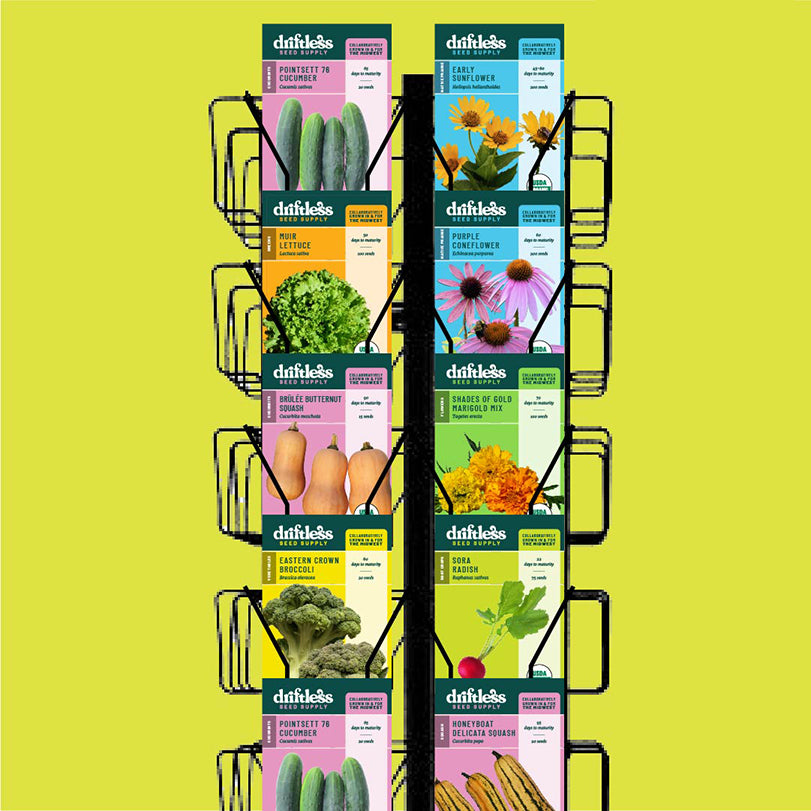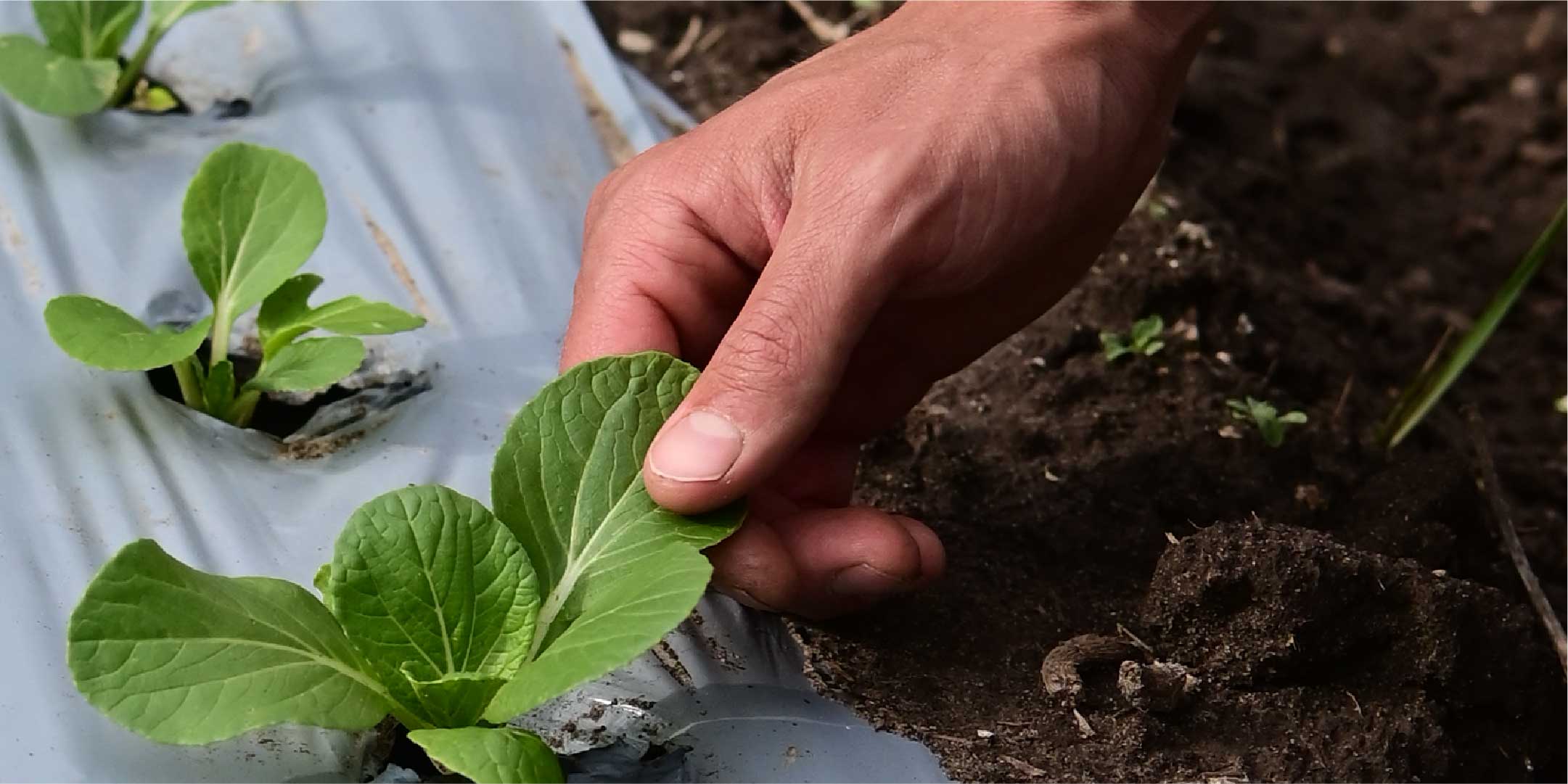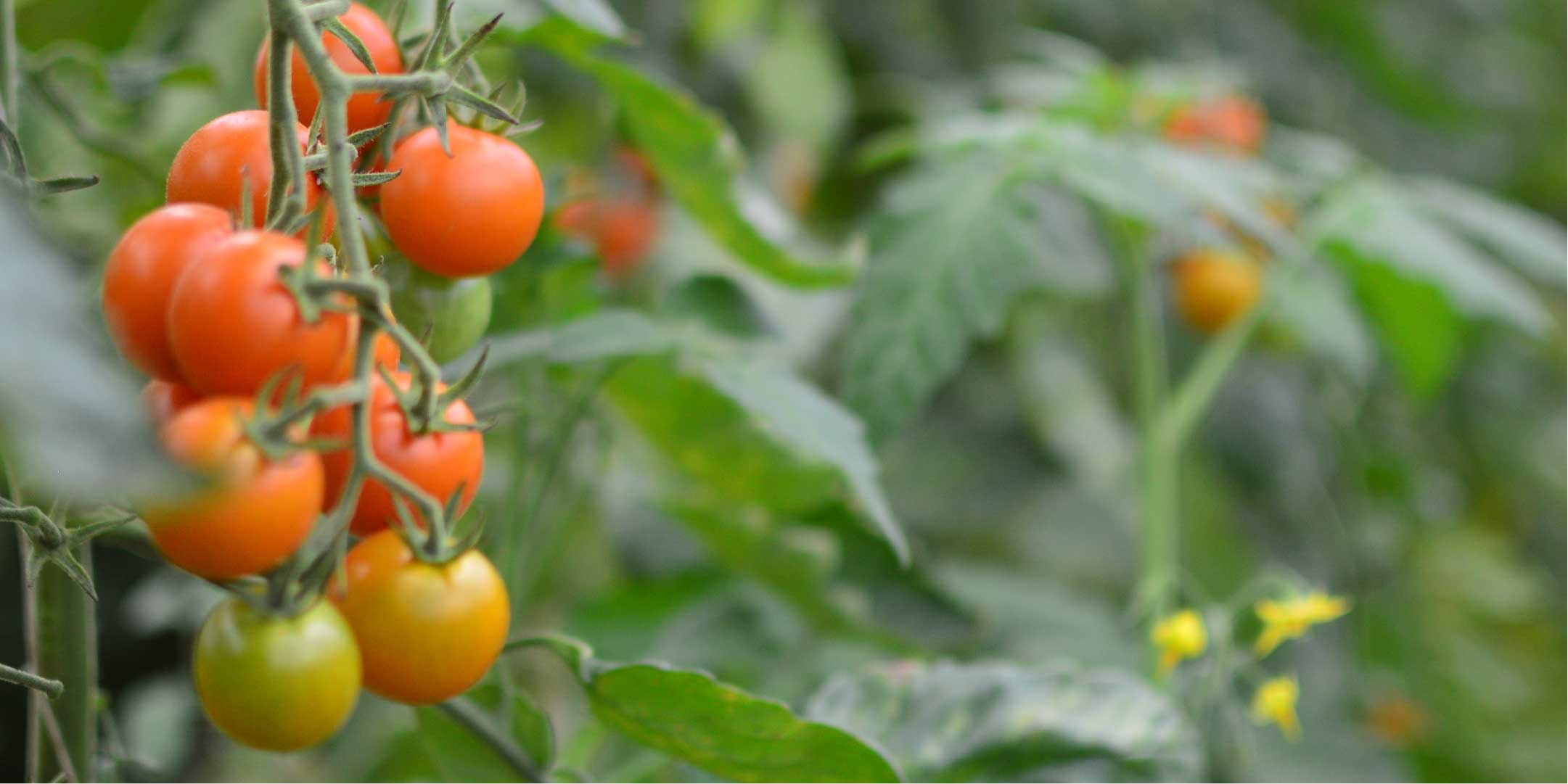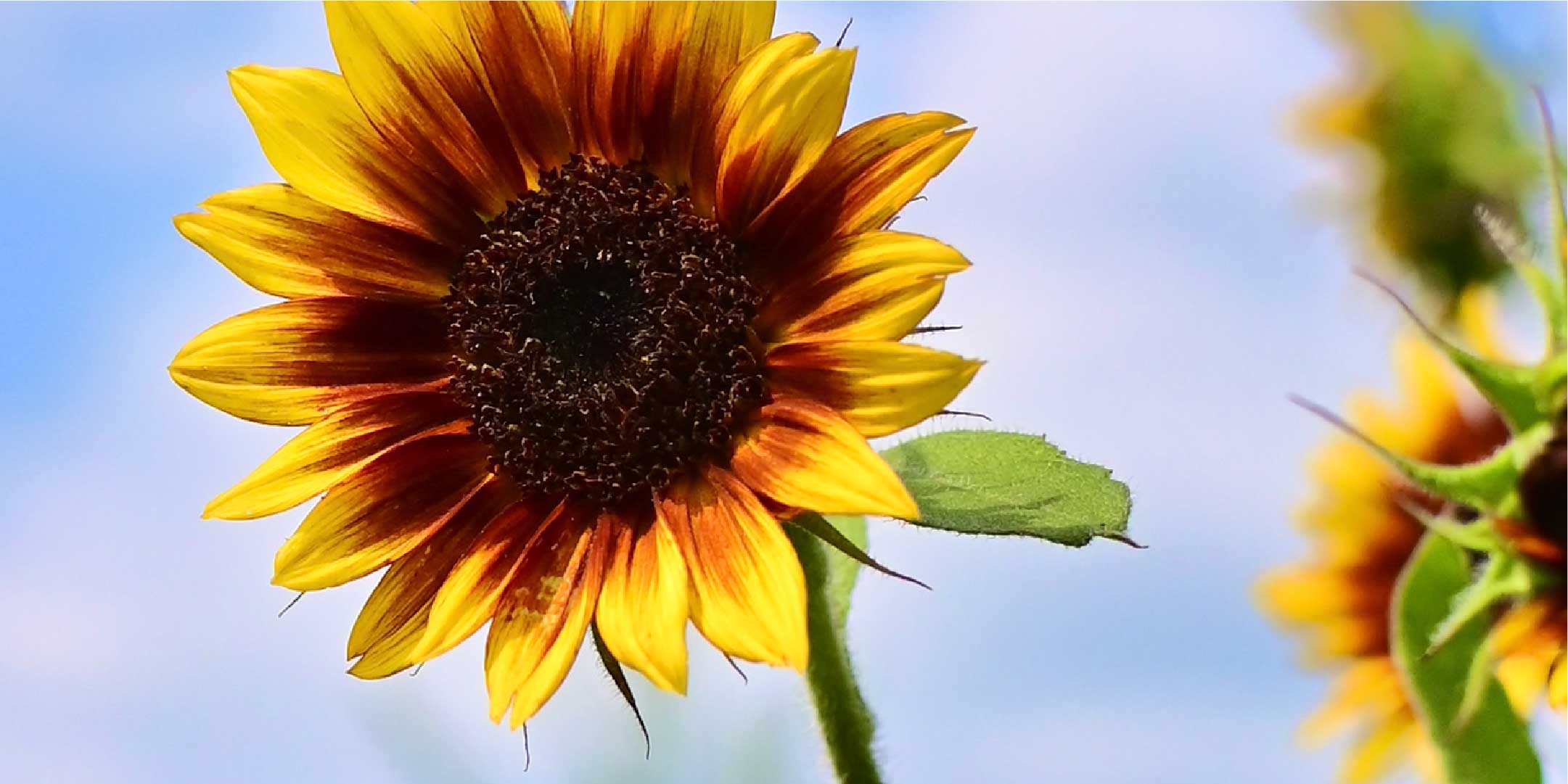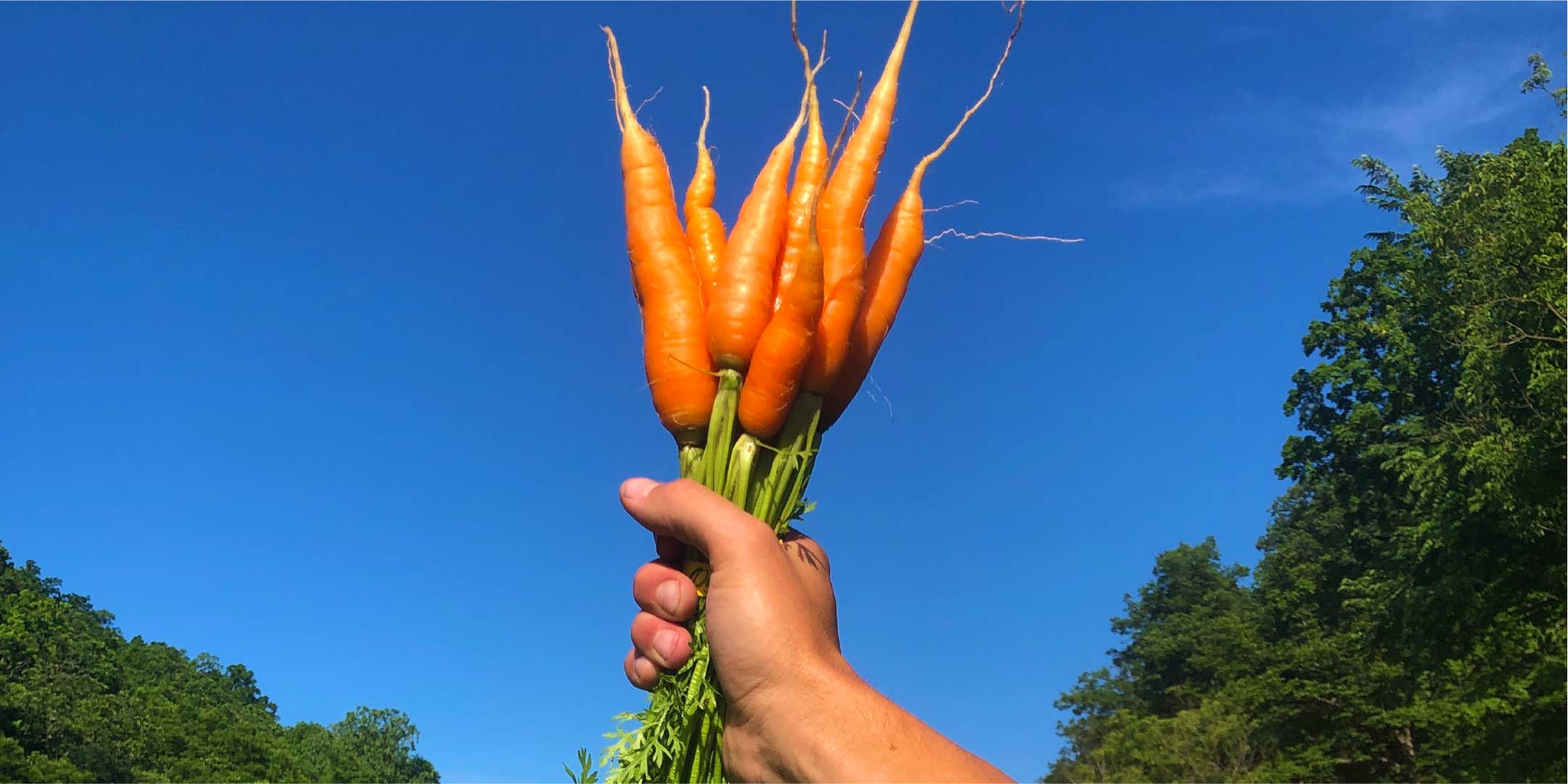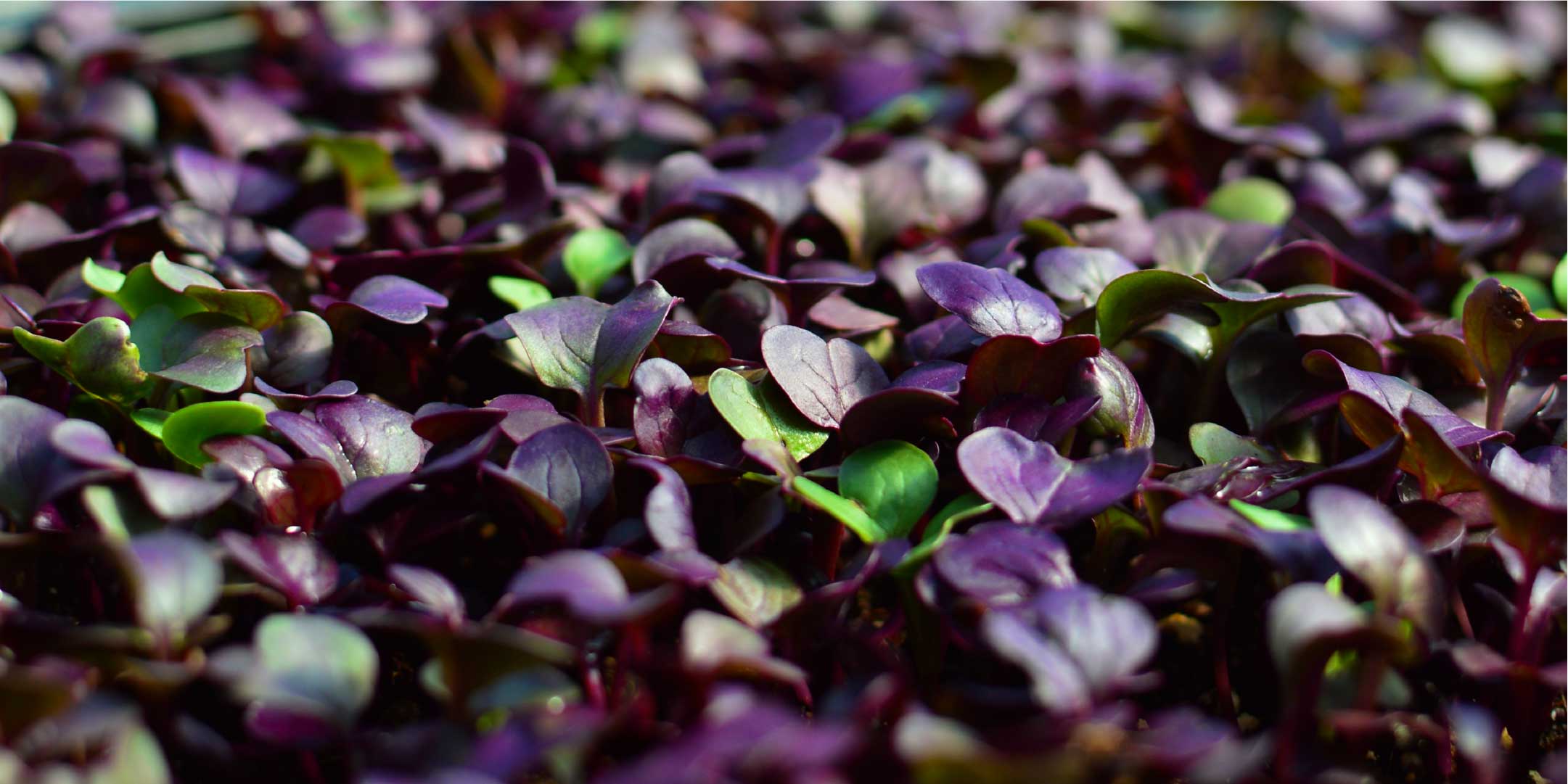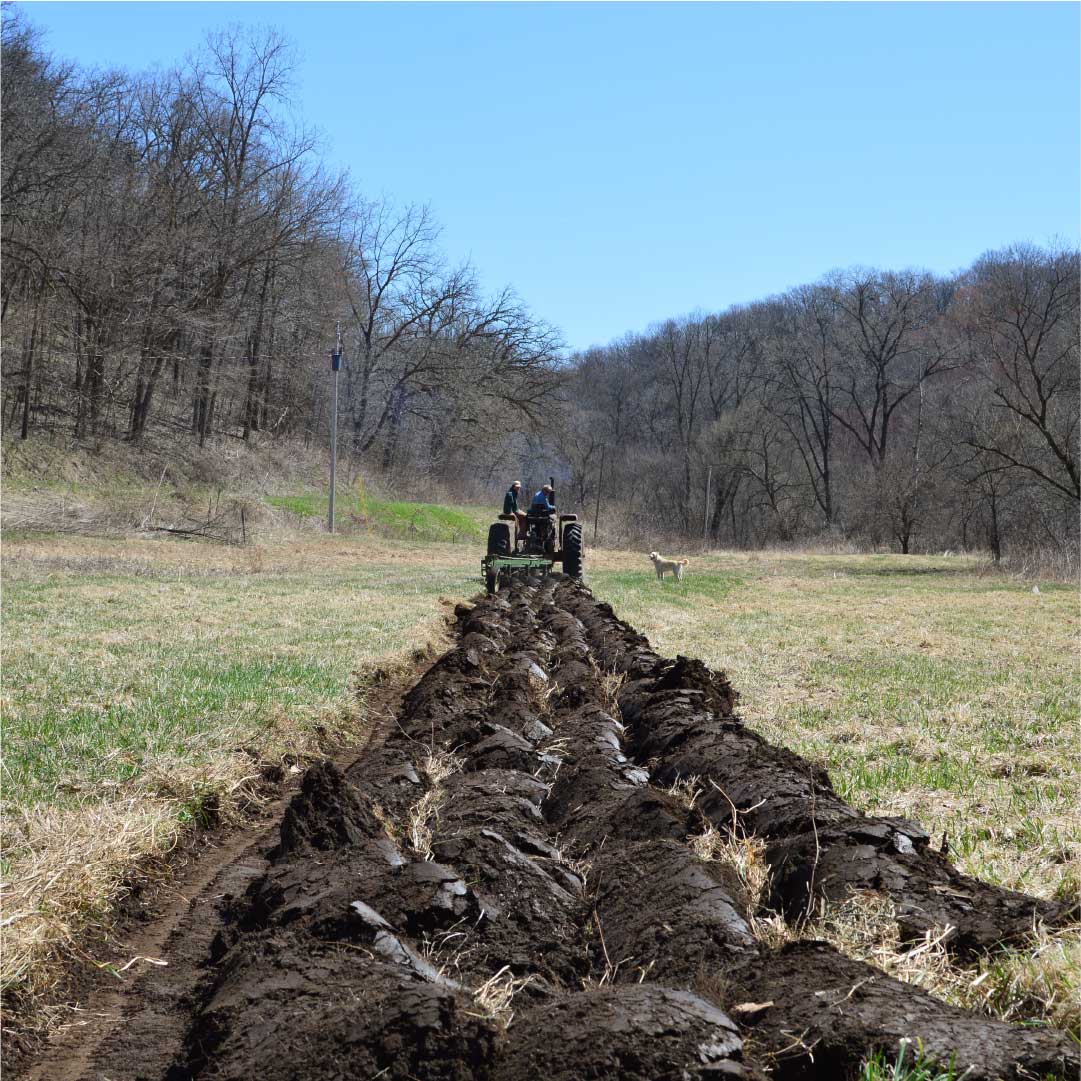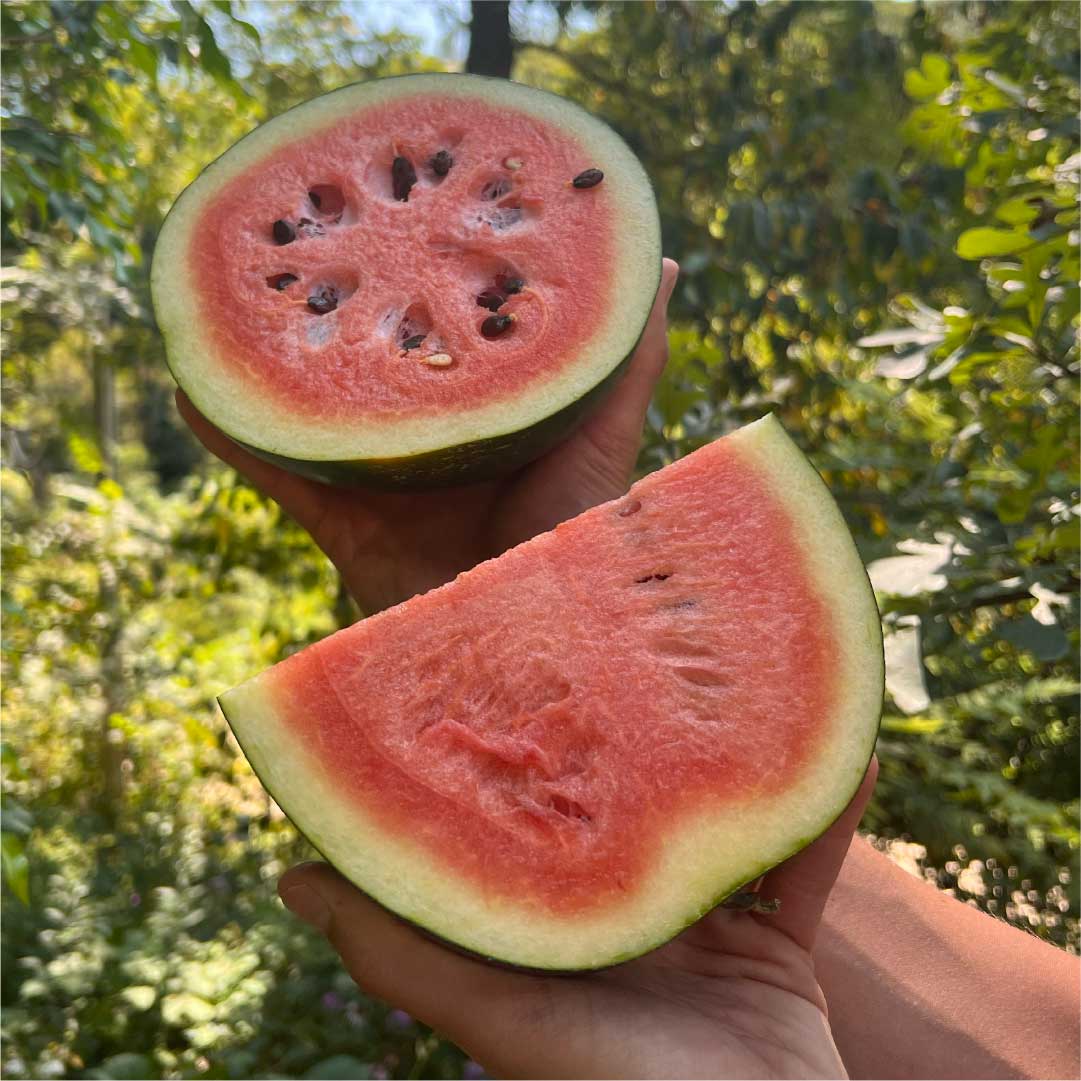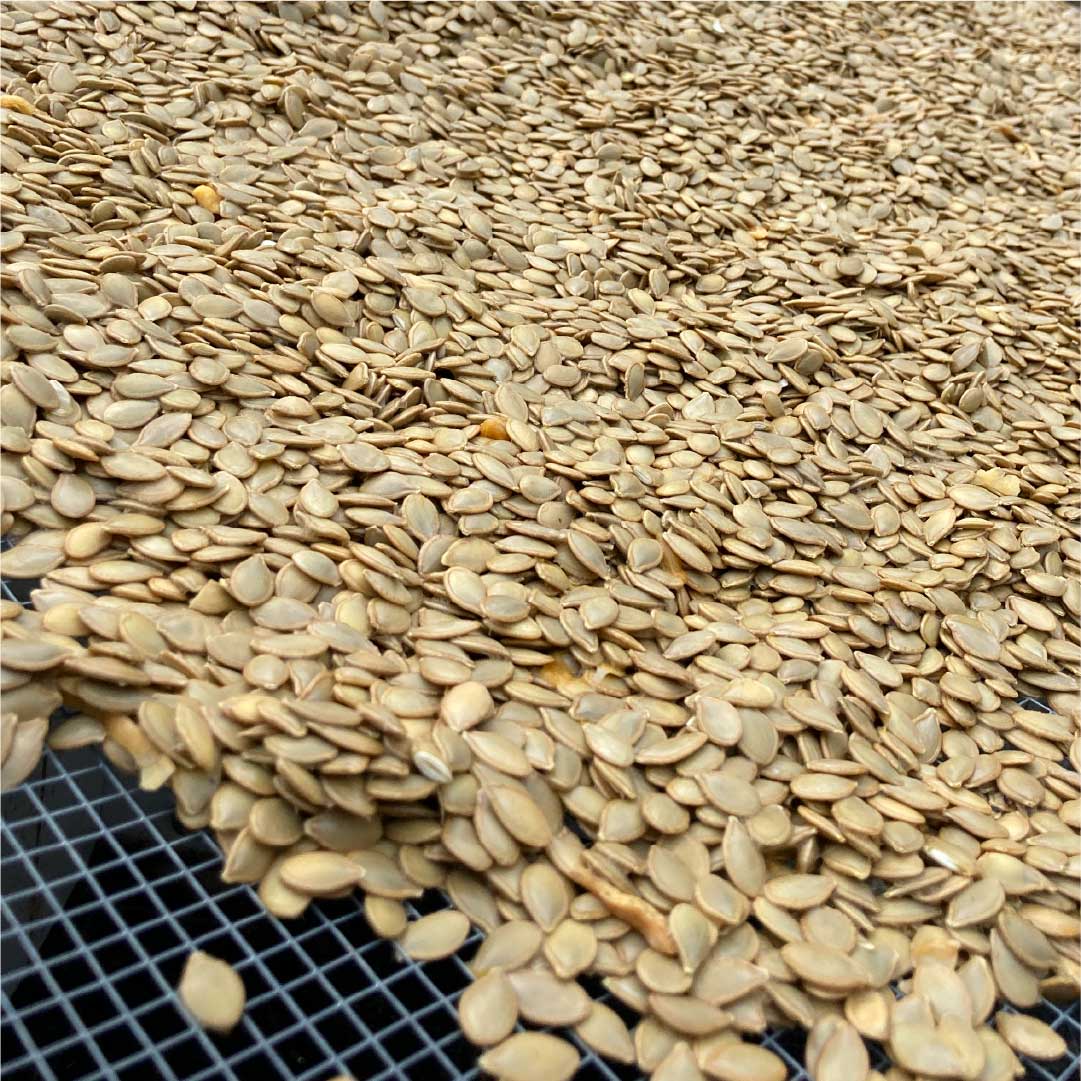FAQ
General Questions
Any seeds marketed as certified organic, including any packets with the USDA Organic seal on them, have been produced with practices verified to be compliant with the USDA National Organic Program. We review the organic certificate for every new grower and seed lot we receive, and our operation is certified organic by Midwest Organic Services Association (MOSA).
We source as many of our seeds as possible from Midwest growers, including through the seed producers cooperative we are in the process of forming. We choose varieties that our team has trialed extensively and know to be a good fit for Midwest farms and gardens. We look for varieties that perform well over multiple years, are good for fresh eating, and are reasonably tolerant of disease and pest (or so darn tasty it’s worth extra care!). Sometimes we source varieties from standard supply chains via other companies, in such cases where we feel the absolute best variety cannot be produced by us (such as with Bolero carrot) even though there are other varieties of the crop we could grow. In some cases, we have not found suitable non-hybrid, dependable varieties to offer in place of those bred and supplied by large companies, such as with our Bishop Cauliflower or Eastern Crown broccoli.
Each seed lot is tested annually according to USDA recommendations, and we ensure that all our seed lots exceed federal minimum germination standards. You can find the germination rate on the back of your packets. We can not guarantee germination rates after the seeds have been stored by a third party. Here are our minimum germination standards, which we always try to surpass:
We offer both open pollinated/heirloom and hybrid seeds, because our priority is offering the right varieties for your farm and garden. We prefer to offer open pollinated and heirloom varieties when we can, because it means it is easier for our coop members to produce the seed regionally. However, we also acknowledge there is an important place for the uniformity and disease resistance that hybrid varieties can provide.
If a variety is described as an heirloom it means that it has been sold or stewarded for at least 50 years, and is an open pollinated variety (not a hybrid).
The shelf life and storage requirements of seeds vary by crop. Our mentors taught us a rule of thumb that the humidity + temperature in fahrenheit should be less than 100. We store our seed below 50% relative humidity, and in modified chest freezers to keep the temperature low. Seeds can be stored in freezers for long periods of time if they are sufficiently dried. This can be especially helpful for seeds with short storage lives, like onions. It’s a good idea to test the conditions by freezing a small amount of the seed first, and then removing them and making sure they still germinate. If they do, you are probably ok to freeze the whole seed lot. While seeds that are stored in conditions above freezing are best off in breathable packaging (like our seed packets, or paper bags), make sure to put seed you are freezing in a plastic bag or jar so that when you remove it from the freezer it doesn’t absorb a lot of moisture as it comes up to ambient temperature. Most of our seeds are dependably good for at least two years.
Products
All our varieties have been hand-selected for suitability for Midwest growing conditions. If you have a favorite variety for Midwest production we encourage you to contact us and let us know, so that we can consider adding it to our lineup!
We have bundled collections for beginning gardeners. However, most of our varieties do best in raised beds or in-ground gardens, and are not typically selected for growth in smaller containers or pots. If you are looking for container options we recommend greens, herbs, and other quick growing vegetables like radishes.
All of our seeds undergo strict germination testing, and we also grow out each seed lot not produced on our home farm the following year after we receive it, to verify quality and purity. If you notice problems with any of our seed lots please contact us and we will provide you credit for the problematic seeds.
Many of our varieties are available in medium, ‘Homestead,’ size packets and in bulk, although a few premium varieties are only available as packets. We also offer wholesale pricing on bundles of 10+ packets per variety, with an initial minimum order amount of 8 varieties. Consider our free choice or pre filled displays and seed racks, including an 8-variety shelf display, 24 variety countertop display, and 48 variety standard floor display. We will also be launching a 96 variety full floor display next year.
All of our seeds are GMO-free, and many are also certified organic
None of our seeds are sold with treatments applied to them. We sell only untreated, non-gmo seeds.
Planting & Growing
Planting timing will vary based on the crop and variety. It is important to consider cold-hardiness of the crop, and what conditions you will be growing it under. In general, many spring crops can be planted in late April or early May, and some even earlier. Most summer crops should be planted after the last frost date, or around June 1st. For fall crops of greens or roots, it is important to have enough warm weather growing conditions to put on a good burst of growth before cold hits, so we recommend planting fall carrots in July, fall radishes in August, and fall greens by late August. Check out our production guides in our grower resources tab for more specific information. Growing in a greenhouse or hoophouse provides extension on either end of your growing season, while using row covers can also allow you to plant earlier in the spring and later in the fall, boosting growth and prolonging harvests by keeping plants warmer by trapping heat from the ground.
Preparing your soil for planting is critical. Make sure you have good soil tilth and a way to keep the soil moist as your seeds germinate or transplants get established. Good soil tilth means the soil is light enough for moisture and roots to easily penetrate, but not so powdered that rain/watering will easily compact the soil. Remove any perennial weeds before planting, and loosen the soil with a digging fork or shovel. Try not to step on the soil where you will be planting. Many transplants also do well with different types of mulches to keep weeds suppressed. Add at least some of the required fertilizers prior to planting, but be careful of overfertilizing which can promote too much foliage growth and lower yields, and may also make your crops more susceptible to pests and diseases.
Concise growing specifications and instructions are included on each packet, but you can also scan the QR code on the packet and visit the product page for more in-depth growing instructions.
The best options for keeping your plants healthy organically are to rotate your crops so that the same family is not planted in the same place for at least three years. Some diseases may affect multiple plant families, so if you are struggling with a particular disease make sure to rotate to a non-susceptible crop for at least 3-4 years.
Ordering & Shipping
Simply find your favorite products, select your preferred size and quantity, add them to cart, and follow our simple checkout process!
We accept all major credit cards and PayPal. For wholesale orders we accept check or ACH - please contact us by phone to arrange alternate payment methods.
Seeds are packed into our specially-designed seed packets that you can reuse for keeping the seeds stored at your house. We pack those into padded mailers or boxes, depending on the order size. Packaging for shipping is not waterproof, so make sure your packs don’t get rained on!
We ship anywhere in the lower 48 states of the US via USPS. Hopefully someday we can ship internationally!
You will receive order confirmation after checking out or submitting payment, and that will include tracking information for your order. Shipping typically takes 3-5 days within the Midwest and 5-7 days outside of the Midwest. However, once the package leaves our facility it is out of our hands and in control of the USPS.
If you are a wholesale customer we will strive to ship your order via Speedee for next day delivery if you are within MN, WI, IA, or IL. Wholesale customers outside of the Speedee service area will receive their orders via USPS.
Policies
All sales are final and we do not accept returns or exchanges except in the case of delivering the wrong item or recalling specific seed lots due to contamination. For wholesale customers who purchase our pre-filled bundles, we will provide a credit for the following season’s order for any packets returned by October 1st.
Contact us and we will expedite the correct item if we have sent you the wrong one. If seeds were damaged in the mail we cannot be held responsible, and you will have to work with the carrier (usally USPS or Speedee) who delivered your order.
Our Shopify web store utilizes best practices to keep your payment and contact information secure. All payments through Shopify Payment are automatically authenticated with 3D Secure to help prevent fraudulent chargebacks.
Use the form on our contact page, or email support@driftlessseeds.com.

